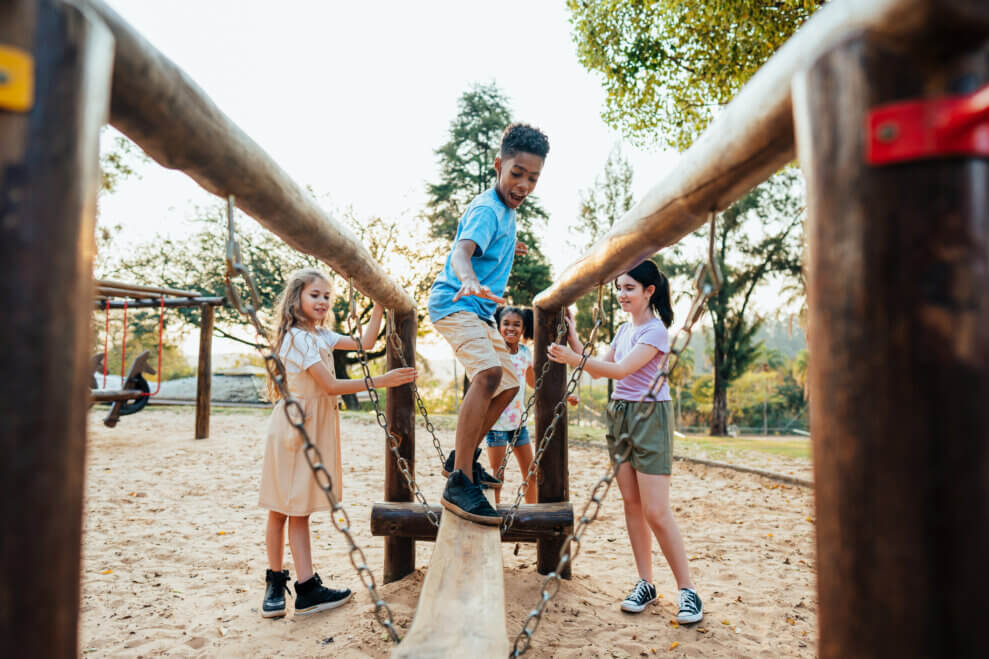Jim Grove Last updated on: February 6, 2023
It’s estimated that the first humans appeared in Africa about two million years ago. In those days, there was no colour television or even indoor plumbing.
Grandpa Homo erectus lived outdoors with poor sanitation, questionable personal hygiene, and little entertainment. He walked in the forest, ran across the savannah chasing prey, ran back the other way as someone else’s prey, climbed trees, and jumped in the river to escape his pursuers. (Okay, that might have been Tom Cruise jumping.)
The point is that he, she, and they were always moving. They were also always listening, watching, feeling, sensing, and smelling what was happening in their outdoor environment.
Those experiences and habits, and those of countless generations since, ultimately shaped how we relate to the outdoors today. Because while we don’t look exactly like grandpa Erectus—or Neanderthals or Cro-Magnons—we still share the same basic processes of growth and maturation and the same sensory connection to our environment.
Outdoor environments and evolution
Through two million years of evolution, our human physiology developed in response to the demands of outdoor living. It made our legs, arms, hands, and feet more efficient for running, throwing, grasping, and kicking. It made our eyes, ears, mouth, and nose become better attuned to the sights, sounds, tastes, and smells of the outdoors. It made our brains responsive to all the stimuli in our environment so we could make sense of it.
It means that even today, evolution demands that our bodies and brains experience the sights and sounds of the outdoors in order to develop and function optimally.
It’s why, if we can afford it, we buy houses with water views and surround them with green gardens full of trees and shrubs. It’s why most people who win the lottery move to a tropical island or a country estate, not a one-bedroom apartment in the inner city.
Most importantly, it’s why children thrill at the opportunity to climb trees, swing on monkey bars, jump in puddles, make mud pies, and throw pine cones. Two million years of biology is driving a developmental impulse to engage with the outdoor environment.

Separated from the outdoors and ourselves
Our modern world frustrates this impulse. In the past 100 years, not only have we obtained indoor plumbing and colour television, but we have started living mostly in cities. We occupy built environments and surround ourselves with technological distractions. It’s a complete reversal of everything we are.
We know that adults who work at desks in cramped office spaces under artificial lighting face elevated risks for a host of physical and mental ailments ranging from heart disease and cancer to anxiety and depression.
Conversely, children who are given exposure to nature and outdoor play suffer less obesity, attention deficit, and hyperactivity while developing better motor skills.
This is why some doctors are now prescribing outdoor time in nature. We know that we need the outdoors to be our healthiest selves. And when we examine especially the physical, mental, and emotional health of our children, a cursory look at brain development tells us why.
Nature and outdoor play are foundational
As pediatric physiotherapist Devon Karchut points out, sensory and motor development are foundational to higher-level cognition and learning. When children don’t experience the right stimuli to prompt that process of sensory and motor development, that foundation is compromised.
Living in cities surrounded by digital screens and other technology, our children’s brains and bodies don’t get the experiences they need. They are developmentally starved. To nourish them properly, we need to get them outdoors and moving.

Outdoor play answers developmental needs
This why child development experts are increasingly talking about the importance of outdoor play. Whether it’s nature schools or family time in the park, outdoor play is now seen to be essential for fulfilling the developmental needs of our children’s brains and bodies.
The sights, sounds, and sensations of moving in outdoor spaces simply can’t be replicated in a classroom or the interior of a childcare centre. To the degree that we can get our children running and jumping outdoors like grandpa Erectus, they will be smarter, happier, and healthier for it.
Tag(s): Home
